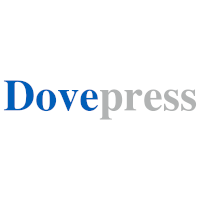- Joined
- Nov 21, 1998
- Messages
- 13,137
- Reaction score
- 7,722
Learn it, love it, dream it...

 www.dovepress.com
www.dovepress.com

Social Media Behavior Guidelines for Healthcare Professionals: An Amer | JPR
Social Media Behavior Guidelines for Healthcare Professionals: An American Society of Pain and Neuroscience NEURON Project
- Professional Boundaries: Physicians should keep personal and professional accounts separate to maintain boundaries with patients. Treat all shared content as public and be cautious when expressing opinions that could reflect on your employer.
- Patient Privacy: Avoid sharing patient information (Protected Health Information, PHI) without explicit consent, and ensure that all interactions protect patient confidentiality. Secure all accounts with strong passwords and two-factor authentication to prevent data breaches.
- Accurate and Ethical Content: Physicians are advised to share only verified medical information and avoid endorsing products without transparency about any potential financial interest. Content should be informative, solve patient problems, and avoid promoting unverified treatments.
- Respectful Engagement: Online discussions should remain respectful and professional, even in disagreements. Public debates are discouraged as they may come across as unprofessional; it’s best to resolve conflicts privately.
- Platform-Specific Strategies: Different platforms serve different purposes. For instance, LinkedIn is ideal for networking with colleagues, while Facebook and Instagram work well for patient education. Always consider the platform’s privacy risks when sharing content.
- Educational Focus: Use social media to educate patients in simple, engaging ways. Videos, graphics, and easy-to-understand language can improve health literacy and patient engagement.
- Monitoring and Adapting: Regularly review your social media presence and adapt to maintain professionalism. Track engagement metrics (likes, shares) as indicators of effective communication, and be open to patient feedback.
